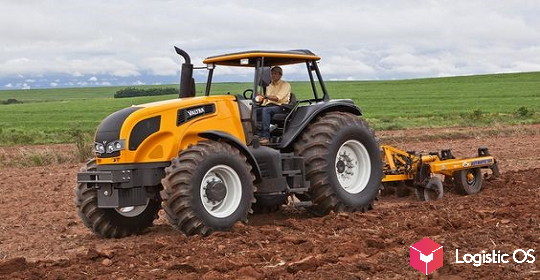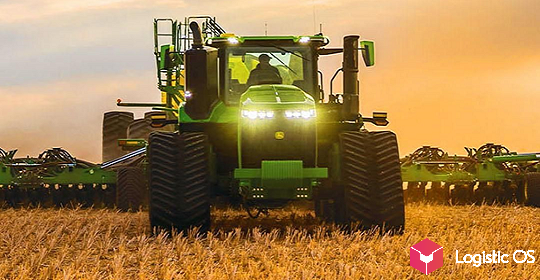State support and private investment could solve the problems of the Russian agro-industrial complex, experts say.
The challenges that the Russian agricultural sector had to face were discussed during the plenary session “Strong Russia: how does the village ensure the country’s food security today and in the future?”.
2022 has acutely shown the problem of dependence on imports. This is especially true for such sensitive areas as technology and seeds.
Almost half of the equipment in Russia is imported
Currently, the share of such agricultural machinery is up to 40%: out of 37 thousand tractors, 20 thousand are foreign.
At the same time, almost half of all equipment operates “beyond its service life,” that is, it already requires replacement with a new one.
However, there are problems with this. Russian farmers purchase approximately 3,000 units of equipment per year, 90% of this import comes from Belarus.
In order to further increase market saturation, it is necessary to produce more equipment in the Russian Federation.
But in general, experts are optimistic about the future.
“Of course, there is government support, and it takes up a significant amount of activity in the agro-industrial complex.
Over the past few years, the agricultural machinery market has changed quite a lot. If before 2022 we said that farmers purchased about 50% of domestic agricultural machinery, and the rest was produced by foreign machine builders, now the situation has changed dramatically.
Traditional suppliers have left, and new companies have come in their place and are trying to develop our market,” said Pavel Kosov, General Director of Rosagroleasing.
Russia is trying to get away from importing seeds
A trend towards a reduction in the share of imports in this area has been evident since 2017. However, the problem is still far from resolved.
At the same time, import substitution is starting to work. For example, it is planned that by 2025 the market for plant protection products (plant protection products) will be 100% filled with domestic products.
As for full import substitution for all types of seeds, this is still quite far away. For some crops, for example, greenhouse vegetables, up to 100% of all seeds are imported.
At the same time, Russian breeders — the heirs of the Soviet ones — have a high level of development and enormous potential. However, at least 2 problems need to be addressed here.
— Lack of world-class seed production institutes in Russia.
— Lack of investment in this area.
Obviously, these 2 problems are interconnected. If the state and private investors invest enough money, then there are no obstacles to Russia completely replacing imported seeds in the foreseeable future.

